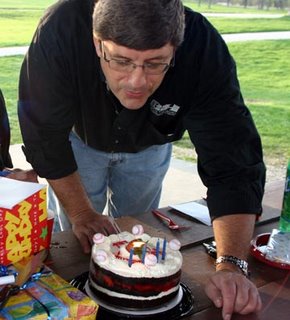 Well, another year has past, I am another year older, closer to my demise, and still I am no closer to answering those perplexing questions that seem to dog my every step... When will I be enlightened? How long must I search for the wisdom to sate my curiosity, to solve these life riddles?
Well, another year has past, I am another year older, closer to my demise, and still I am no closer to answering those perplexing questions that seem to dog my every step... When will I be enlightened? How long must I search for the wisdom to sate my curiosity, to solve these life riddles? Here are some curveballs life has thrown me:
Did Adam have a belly button?
If I travel at the speed of light and turn on my headlights, what happens?
It is said that if one is capable of traveling faster than the speed of light then he would actually travel backwards in time... then if I could travel fast enough could I get to where I am going before I actually leave?
Why are they called paper clips if they're metal?
If I were to ship a load of styrofoam what should I pack it in?
Why do we call it a "hot water heater"? If the water's hot, why heat it? If it's cold then we should call it a "cold water heater".
Why do we drive on parkways and park on driveways?
Why do we call a delivery by truck a "shipment" but a delivery by ship "cargo"?
What was the greatest thing before sliced bread?
When two planes almost collide it's called a "near miss". Wouldn't a near miss be a hit?
If 7-11 stores advertise they're open 24 hrs a day, 365 days a year then why do they have locks on their doors?
If the little black box is so indestructible why don't they make the whole plane out of it?
If you choke a Smurf what color does it turn?
If nothing sticks to Teflon then how does it stay on the pan?
If you make a cow laugh real hard would milk come out it's nose?
Why don't we spell Phonetic the way it sounds?
Why are there interstate highways in Hawaii?
Before drawing boards were invented what did we go back to?
What hair color do they put on a bald man's driver's licence?
If a book about failures doesn't sell is it a success?
Do cemetary workers prefer the graveyard shift?
Well, tghat's it for now. My mind hurts from all the fruitless processing... I hope you enjoy...




